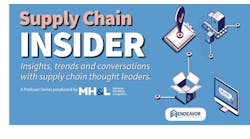In the latest twist in the saga of the EEO-1 Form, the Equal Employment Opportunity Commission (EEOC) announced that it will continue to maintain the May 31 deadline for employers to submit basic information and a separate Sept. 30 deadline for more complex data covering 2018.
However, under pressure from a federal judge, the commission recently chose to add another requirement: Employers also must submit employee pay data for the year 2017 by the same Sept. 30 deadline set for when the final installment of the 2018 data is due.
The new deadlines were approved by the federal district court judge whose ruling had overturned an earlier attempt by the commission to simplify the EEO-1 Form, which would have removed reporting requirements that had been significantly enlarged by the Obama-era EEOC.
The end result is that employers now only have a matter of weeks to file the first part of the newly-required form. The May 31 deadline applies to what EEOC calls Component 1 data, which includes workforce demographics by job category, race, ethnicity and gender. Employers may request an extension until June 14, but any requests for deadline extensions beyond that date will require review by the commission.
The Component 2 data that is due by Sept. 30 must include aggregated data for both 2017 and 2018 regarding the pay and hours worked. This must be broken down into 12 pay “bands,” ranging from about $19,000 to more than $208,000 a year across 10 job categories, and then by the same racial, ethnic and sex groupings that were previously used when submitting existing demographic data.
Employers must draw this data from one single payroll period of their choosing found to have occurred between Oct. 1 and Dec. 31 of each reporting year.
Because of the sheer size and complexity of the Component 2 data, the commission went outside of the agency to contract with the University of Chicago’s National Opinion’s Research Center (NORC) to handle the data gathering and analysis at a cost of more than $3 million. The commission told the judge that NORC said it would be impossible for it to begin to process the extra Component 2 demographic and pay data any sooner than Sept. 30 of this year.
In addition, the head of EEOC’s Office of Enterprise and Data Analytics warned the court that unless the requested delay was allowed, “there is a serious risk the expedited data collection may yield poor quality data because of the limited quality control and quality assurance measures that would be implemented due to the expedited timeline.”
All employers in the U.S. who have 100 or more employees, as well as federal contractors and subcontractors who employ 50 or more workers, are required to file both of the Component 1 and 2 forms.
The EEOC also announced that it will begin collecting Component 2 data for both 2017 and 2018 from employers in mid-July, with a deadline of Sept. 30 for final submissions. The commission said it will inform employers as soon as it can about the precise date that the online survey will be available. It also previously stated that it intends to provide some employers with two-week extensions of the Sept. 30 deadline on request.
The court case that all of these twists and turns stem from was fought over the requirement that employers file the Component 2 data that the Obama-era EEOC had sought to impose, but which was withdrawn by the Trump White House Office of Management and Budget (OMB), the agency charged with approving all new federal regulations before they go into effect.
That decision and EEOC’s new procedures were challenged in federal court, eventually resulting in its reversal and reinstatement of the Obama-era requirements by the same federal court judge who later approved the new filing deadline.
The judge’s decision is expected to be appealed once the commission’s new chairman, Republican Janet Dhillon (who was recently confirmed by the Senate following a long delay), is sworn in. In the meantime, the Department of Justice has filed an appeal on behalf of OMB.




